analysis Sustainability
COP30: Climate diplomacy at a crossroads, 10 years after Paris accord
As the COP30 UN-led talks kick off in Brazil, observers say climate diplomacy is increasingly fragmented by geopolitics, nationalism and economic rivalry. But they remain cautiously optimistic about progress.
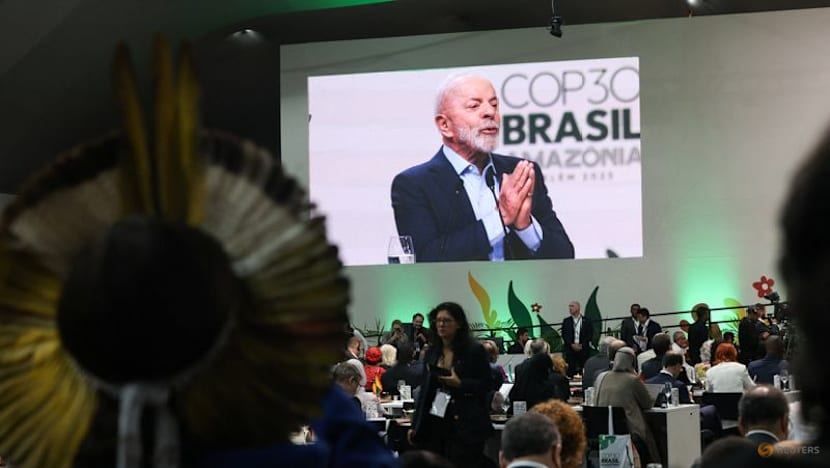

This audio is generated by an AI tool.
BANGKOK: For a decade, the Paris Agreement on climate change has weathered shocks that could have broken it - the first term of United States President Donald Trump, COVID-19 and multiple regional conflicts.
Despite it all, the landmark agreement that set the framework and aspirations for global action on climate change has endured.
Yet, as tens of thousands of leaders in government, business, academia and NGOs descend on Brazil for United Nations-led global climate talks, the climate diplomacy that has proven durable over the years now looks increasingly fragile, analysts told CNA.
COP30 will be held in the city of Belem from Nov 10 to 21, following a two-day leaders’ summit held there last week. Its main focus will be on new national climate plans for the next decade, unlocking vast sums of finance and taking steps to operationalise carbon trading.
The plenary halls will sit amid the deep green expanse of the Amazon, a reminder of what is at stake and a sharp counterpoint to the fraught negotiations within, shaped by war, distrust and a fast-heating planet.
A “golden age” of cooperative climate politics is giving way to something more competitive and fragmented, analysts said. Climate diplomacy has become more transactional, driven more by domestic concerns and market logic than shared ideals.
The signing of the Paris Agreement in 2015 was a landmark moment involving 196 countries. It is a short document - 16 pages covering 29 articles.
It was far from the start of efforts to slow global warming, but it set a clear universal target to keep the rise in mean temperature to well below 2 degrees Celsius.
What came with it was “a huge level of energy generated by climate multilateralism”, said Li Shuo, director of the China Climate Hub at the Asia Society Policy Institute in Washington.
Since then, countries have continued to negotiate multiple aspects of the agreement itself and its broader goals of reducing emissions, empowering adaptation to adverse impacts and ushering in green, low-carbon economies.
This collective action has resulted in measurable progress on nearly all fronts.
Increases in clean energy investment have been significant, governments have widely introduced climate policy frameworks nationally and net zero pledges have proliferated in the corporate sector worldwide.
“Thanks to the Paris Agreement, the last 10 years have seen a cohesion on the overarching aim of climate politics that is unprecedented,” said Indra Overland, head of the Centre for Energy Research at the Norwegian Institute of International Affairs.
“The Paris Agreement is not a silver bullet, but an indispensable part of the solution,” he said.
Despite this overarching framework, the impacts of climate change have been profound. Extreme events are compounding and the emissions gap - the difference between what is needed to limit temperatures and what is projected - remains large.
Carbon dioxide levels in the atmosphere reached record-high levels in 2024, according to the US National Oceanic and Atmospheric Administration.
Global carbon emissions from fossil fuels are projected to rise by 1.1 per cent in 2025, reaching a record high, research by the Global Carbon Project found.
UN secretary-general Antonio Guterres said in an interview with the Guardian this month that the goal to cap global mean temperature rise at 1.5 degree Celsius is already dead, calling it a “moral failure” by those who have failed to act.
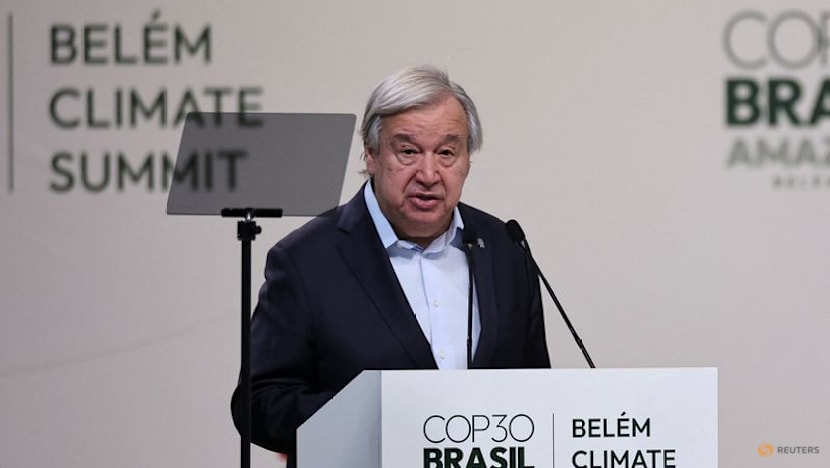
"A MUCH MORE DIFFICULT PHASE"
There are strong signs that the consensus of climate action for the global good has eroded in the face of more pressing contemporary challenges, like war, trade turbulence and economic stagnation, experts said.
It means climate change is being pushed down the agenda, domestically and internationally, Overland said. Realpolitik has replaced the idealism of a decade ago.
Li described it as a “watershed moment” because of the turbulence of global political and economic conditions and the “rapidly diminishing” relationships between some countries.
“They're turning in another direction” compared to a decade ago, and this may only be the beginning of a “much more difficult phase”, he said.
As the world’s largest economy and second-biggest emitter – albeit the largest historically – the US has held much influence over global ambition.
The expected absence of senior US officials at COP30, and Washington’s wider retreat from international cooperation, threatens to send shockwaves through the global climate system.
The climate pledges made under the previous Joe Biden administration appear unlikely to survive. Under Trump, Washington has hardened its opposition to multilateral climate efforts, from the Loss and Damage Fund to broader financial commitments aimed at helping poorer nations adapt.
Analysts warned that this reversal could reverberate well beyond US borders, emboldening other governments to scale back ambition or delay financial commitments.
Trump’s bombastic language deriding climate science, including at the UN General Assembly in September where he labelled climate change “the greatest con job ever perpetrated on the world”, has resulted in a slow creep of climate denialism around the world, said Christopher Len of Singapore’s ISEAS-Yusof Ishak Institute.
“It’s become harder to drive collective action when doubt creeps into mainstream public discussions,” he said.
The result has been political messaging throughout the world that is less about the existential threat of climate change and is now more pragmatically oriented, focusing on the economic opportunities and improved quality of life that come with green growth, he said.
“We see more fragmentation, with countries focused on their own self-interests as well as pushback from the fossil fuel industry. It's tough to get everyone on the same page.”
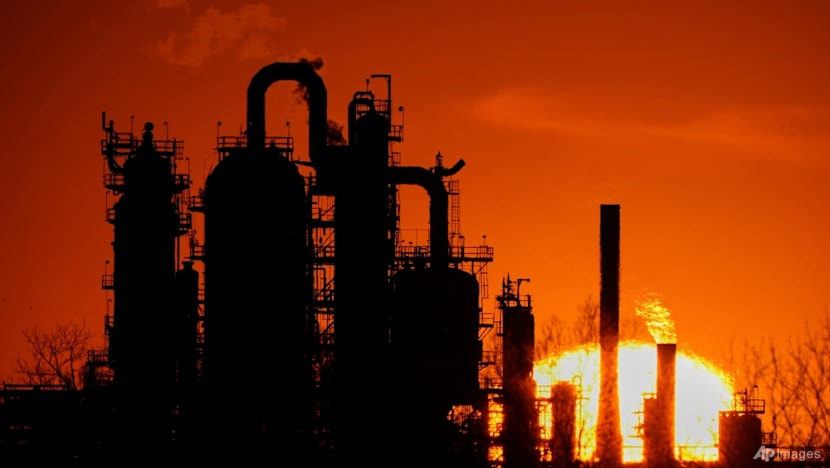
Still, some observers see a silver lining: The absence of a disruptive Washington could free others - from Europe to emerging economies - to press ahead with new coalitions and agreements.
COP30 is once again expected to be a stage for a showdown between the Global North, made up of industrialised, economically advanced nations historically responsible for global warming, and the Global South, which comprises less industrialised, lower-income nations bearing much of the brunt of the impacts.
The European Union has been thrust into a diplomatic leadership role, despite its own difficulties coming up with a unified climate strategy within the bloc.
Brazil may emerge as a bridge between the north and south but faces its own credibility test as it takes over the COP presidency.
It leaves the world’s largest polluter, China, primed to step into a steering role of much influence, if Beijing so chooses, Li said.
CHINA’S ECONOMICS AND POLITICS
China has taken a powerful strategic advantage in the clean energy race, given its heavy focus on multiple aspects of the green economy, natural resources domination and clean technology development, all amid Washington’s climate retreat.
It controls more than 70 per cent of global manufacturing capacity in every major segment of clean tech as of 2024, according to analysis by BloombergNEF, and also dominates the production of at least 15 critical minerals or mineral groups.
Chinese firms also produce nearly two-thirds of the world’s electric vehicles and more than three-quarters of EV batteries, reported the Information Technology and Innovation Foundation.
But Beijing’s political calculus is vastly different to its economic approach, Li said, adding that he expects conservatism will still guide China’s approach at COP30.
Beijing has voiced measured support for climate multilateralism in the past. It may become a more vocal player diplomatically if its economic strengths in key industries increasingly translate to diplomatic leverage, he added.
“At some point, they may also need to roll up their sleeves at a COP and actually drive the agenda, because at the end of the day, it is in line with their commercial interests. It will just take time,” he said.
“We would fool ourselves if we think that COP is the only place to look if we're seeking action. The Chinese side is not bringing their electric vehicles or wind turbines into the COP,” he said, reasoning that China's climate leadership remains in the economic sphere.
Still, Beijing will want to manage the optics of COP in a pragmatic fashion, he said, “so that it's not one that tells the story of the global system crumbling”.
Chinese President Xi Jinping and former US President Barack Obama were central figures in driving cooperation for the signing of the Paris Agreement. But when Trump met Xi in South Korea in late October, large-scale climate cooperation was not on the agenda, as the pair instead largely focused on tariffs and trade, including rare earth metals and oil and gas.
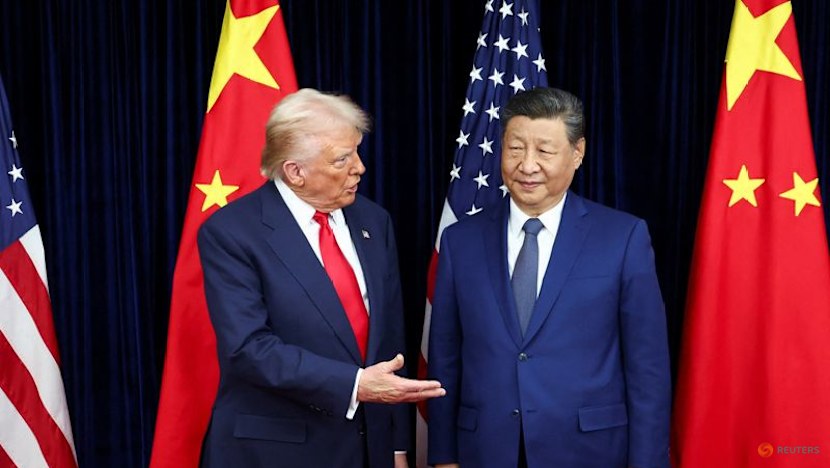
"CLIMATE LAGGARDS"
Southeast Asian countries have largely been slow to update their national climate plans for the next decade, one of the key requirements for parties to the Paris Agreement before COP30.
Singapore was the only nation in the region to submit its Nationally Determined Contributions (NDCs) before the February deadline, which was later extended to September.
Its NDC roadmap to 2035 highlighted targets including around 6GW of low-carbon electricity imports by 2035, pursuing low-emission technologies including carbon capture and storage and nuclear as well as the phaseout of pure internal combustion engine vehicles by 2040.
In late October, Malaysia and Indonesia submitted their NDCs.
Malaysia now projects its emissions to peak sometime between 2029 and 2034, while Indonesia - the region’s largest economy and emitter - is projected to peak by 2030, a goal heavily dependent on forestry and land use.
Indonesia’s NDC gave no details of plans for early retirement of coal-fired power plants or a fossil fuel phase-out strategy, despite bold statements from President Prabowo Subianto at the G20 last year of his plan to phase out the country’s enormous coal fleet within 15 years.
“Indonesia’s climate targets are a bitter disappointment,” Sisilia Nurmala Dewi, the Indonesia team lead of 350.org - a global grassroots organisation advocating for the end of fossil fuel use - said in a statement.
“This glaring disconnect between presidential rhetoric and official policy raises serious questions about the government’s sincerity and commitment to climate action.”
Overall, Southeast Asia has rapid growth yet deep fossil-fuel dependency, even despite its high vulnerability to climate impacts. The region is both vulnerable and pivotal to collective action, analysts said.
Most members of the Association of Southeast Asian Nations (ASEAN), however, remain “climate laggards”, Overland said, and at present are more likely to “swing” depending on international trends on climate action rather than lead.
“The ASEAN countries are followers and will follow suit if there are strong signals that climate policy is important to the rest of the world,” he said.
“However, with the Trump administration and the unravelling of international cooperation it may become more difficult than ever to bring the ASEAN countries onboard.”
Len said Southeast Asia has the potential to become a genuine policy-mover on the global stage if cooperation is strengthened within the bloc and the region can showcase success stories that other regions aspire to learn from.
Right now, countries in the region have set conditional climate goals which rely on international financial and technological support to be fully achieved.
With an “urgent shortfall” of such funding, he said, climate pledges are not on track across the board.
“Without adequate funding, much remains aspirational in our region. We are in a race against time,” he said.
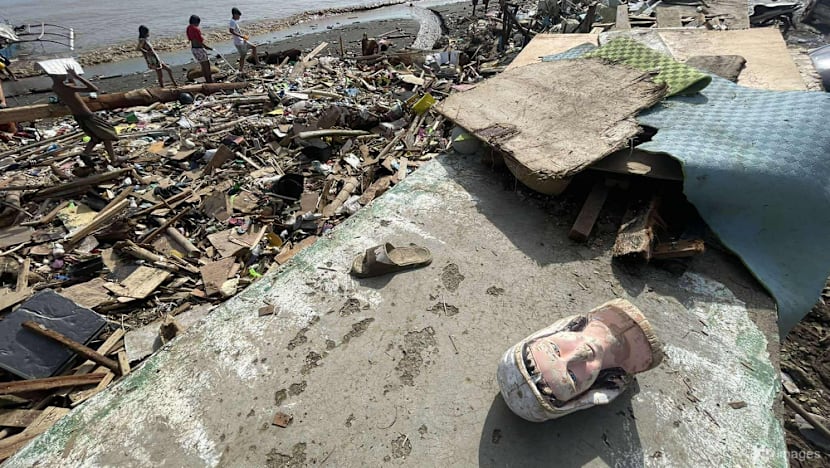
A STRESS TEST
COP30 looms not just as a summit, but a stress test for whether the world’s political, economic and moral engines can still pull in the same direction.
A key question remains over whether diplomacy can still deliver for the vulnerable.
Brazil kicked off COP30 by launching details of the Tropical Forest Forever Facility, a flagship project under the government of president Luiz Inácio Lula da Silva, which would, in effect pay, developing countries to protect their tropical rainforests.
The blended finance fund - relying on money from contributing governments, philanthropy and private investment - has a target size of US$125 billion and started receiving pledges during the leaders' summit in Belem last week.
Meanwhile, the overall finance goal unlocked at COP29 - US$300 billion per year by 2035 and a broader ambition to mobilise up to US$1.3 trillion annually - is meant to be directed towards countries bearing the brunt of climate impacts.
It is a figure that will likely prove complicated to mobilise, yet is deemed far insufficient for the growing needs of countries as impacts intensify.
The erosion of leadership at the global stage - likely to be an influencing factor at COP30 - means those countries themselves “must also now fill the gap for courage, leadership and ingenuity in order to have even a fighting chance of securing meaningful outcomes at COP30”, said Rueanna Haynes, head of diplomacy at Climate Analytics, a non-profit climate science and policy institute based in Berlin.
“It will not be an easy road,” she said.
Still, the analysts are cautiously optimistic that despite the geopolitical fractures, climate diplomacy still mattered, and the pathway laid out by the Paris Agreement could deliver.
Haynes labelled the current state of climate diplomacy as “fragile but not without hope” and that progress now is inevitably going to be more incremental than transformative.
Li described the Paris accord as the important road on which the cars are being directed towards progress. But it would still be up to individuals to determine the speed and manner in which they drive.
“At the end of the day it is up to the drivers, all the countries, to decide which gear they should switch to. We have some drivers who are probably drunk and driving the car the opposite direction, and probably along the way, they will hit a few other cars as well,” he said.
“You cannot blame the road for that.”




















